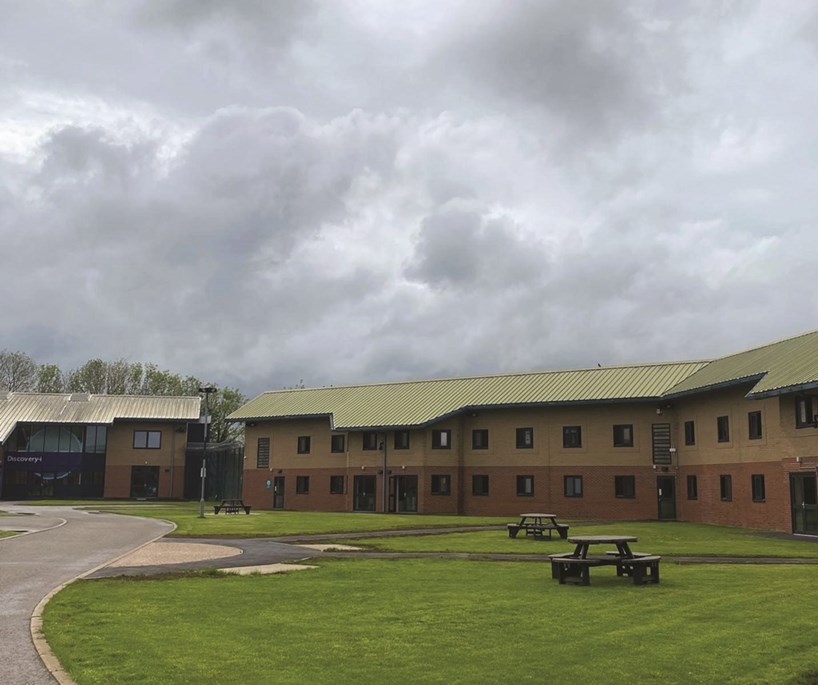THE temporary closure of Oasis Restore, Britain’s first “secure school”, less than a year after it opened is a “tragedy”, the founder of Oasis, the Revd Steve Chalke, said this week. He was speaking after a series of Ofsted reports highlighted concerns about the educational facility.
Opened in the summer of 2024, after a £40-million refurbishment of the site of the former Medway Secure Training Centre, Oasis Restore is a partnership between Oasis, the Ministry of Justice, the Department for Education, and the NHS.
As a “secure school”, it was designed to accommodate young people aged 12 to 19 who had been convicted of serious criminal offences, with places commissioned by the Youth Custody Service. The building, comprising houses with bedrooms rather than cells, and no bars, can accommodate 49 children, ranging in age from 12 to 18.
Its ethos was described by Mr Chalke as the “abandoning of a penal approach” and was designed as “first of all a home, and then a school, and then a health centre. The whole experience children will have here will be both educational and therapeutic” (Features, 24 May 2024).
On Monday, Mr Chalke said that Restore was “progressing well” after its opening last year. But, in February, an internal secure door had been broken after a “dysregulated” young person kicked and broke it. “That shouldn’t happen,” he said. “The doors aren’t supposed to do that.” Other doors had also been kicked and broken.
“This is a highly secure unit working with the most complex young people in the country,” he said. “All have committed violent crime. . . What you need in order to run a secure environment is well-trained staff, trained in a therapeutic approach and non-confrontational restraint, and a secure environment, and you are dependent on both.”
The lack of such an environment after the destruction of the doors had produced a “deterioration” in children’s behaviour, “because they were scared”, he said. “And it led to some of our staff feeling unsafe as well.”
As set out in an Ofsted inspection published on 30 July, Oasis “reluctantly” decided to close the facility temporarily in September. The report recorded that several security doors had been “badly damaged, which compromises the safety of children and staff”. Managers reported to Ofsted that the damage and security failings had led to a rise in locking children into an area alone. Inspectors found “serious safety and security issues in two areas of the home”.
The Ministry of Justice was responsible for the building, including expediting repairs and ordering necessary items, Ofsted said, “but it has failed to ensure that the replacement items needed are available and installed within a reasonable time frame”.
The July report followed a series of inspections that praised aspects of the unit while raising concerns. An Ofsted report in February concluded that Restore required “improvement to be good”. Children told inspectors that staff lacked “consistent boundaries and expectations”, while staff felt “disempowered because of a lack of clear incentives for children”.
 Oasis RestoreExterior of Oasis Restore
Oasis RestoreExterior of Oasis Restore
Senior staff had faced “significant challenges” since the home was registered, including “difficulties with recruiting and retaining managers and staff who have suitable skills, experience and the values and attitude that senior leaders are seeking”.
Another visit in April reported the need to replace a “high number” of internal doors, but said that mitigating steps taken by staff had “significantly reduced the risk to staff and children”. It recorded an increase in children’s making weapons out of everyday items, and some reported feeling unsafe as the reason. There had been no incidents in which children had harmed others with weapons, and the report praised the “nurturing care” of staff.
The next visit in June concluded that the effectiveness of leaders and managers was “inadequate”. It also raised concerns about single separation, including a lack of “comprehensive exploration of the emotional impact on children”, but said that staff at the time approached children “with care and nurture”.
“Interventions that help children to understand the reasons why they need secure care are of a good quality,” it said. “Direct work focuses on building self-esteem and provides a safe space where children feel comfortable to open up. Through this means, children are building trusting relationships with the staff, which is supporting their progress.”
After the destruction of the doors, the Ministry of Justice had said that Restore could expect all new doors to be fitted by mid-May, Mr Chalke clarified this week. But, in July, Oasis learned that the new doors had not even been ordered. Knowing that it would be at least three more months before the doors arrived had caused a “dip in morale” and the loss of staff. The Oasis board had decided to “shut temporarily”.
The Ofsted reports have attracted media attention. An investigation by Channel 4 News in August quoted a representative from the Prison Officers’ Association who said: “Assaults are rife, assaults on staff are not getting reported to the police including sexual assaults on staff, managers are trying to cover things up and the managers are encouraging staff not to report things to the authorities. . .
“There’ve been lots of incidents of disorder including prisoners there refusing to go behind their doors on lock up, prisoners refusing to go to education which has led on some occasions to managers instructing staff to allow them to stay out of their rooms and to play football outside for a period of eights hours because they refuse to go to education. It’s completely chaotic, it’s out of control, it’s disordered and there are too many incidents of violence to the people who work there.”
One staff member said: “It is hard to live out the ethos. The kids come with a lot of trauma and issues that affect their behaviour, which can be extreme at times. Staff are just making sure that they don’t hurt each other or themselves and trying to engage them in activity. Kids need clear boundaries and they need to be ready to engage to come here.”
On Monday, Mr Chalke said that Restore had been subject to unsubstantiated allegations. No staff member worked alone and there were security cameras everywhere, he said. The children placed at the unit had “huge developmental trauma. . . That is why they are in a secure environment in the first place.” It was not part of the prison service, he said, but a secure school inspected by Ofsted.
“The whole point is the children that come to us aren’t engaged in community, let alone education. And that is why they are coming to us. Just the going through a court process when you are a child and being sent for custodial sentence is highly traumatising.
“When they first come to us they are totally discombobulated: they are all over the place. They do not come to us ready to engage. Our task is to work them them therapeutically to calm them and engage with them so they reach point where they can engage. Therapeutic care is all about building relationship and trust.”
The “vast majority” of staff were “brilliant at doing that”, he said.
The timetable for new doors was “a question for the Ministry of Justice. But I’ve asked and asked and asked and as yet, there is no exact timeframe. . . We are talking about months not weeks — which is a tragedy. This is the hardest thing that has ever happened to me in my working life. It’s the toughest things, because I feel that we were commissioned to work therapeutically, and we have failed those children, who had to go elsewhere.”
On Tuesday, a Ministry of Justice spokesman said: “We are taking the issues at the Secure School extremely seriously, and we have been working with Oasis Restore to get them addressed. We are working at pace to fix doors, and we have now moved all children and young people to other secure settings.”















